- Home
- H A CULLEY
The Path to the Throne Page 8
The Path to the Throne Read online
Page 8
‘John Balliol is a fool. He’s signed a treaty with the French that does him no good at all and which will merely serve to antagonise Edward.’
‘What do you think Edward will do?’
‘Invade Scotland and put Balliol in his place, I should imagine. I tell you, we are well out of this fiasco, my boy.’
Chapter Five – Toom Tabard – 1296
William Wallace, now twenty two, was back on his manor when the messenger from the High Steward arrived. He had refused the honour of knighthood and now just wanted to be left alone to manage his lands and enjoy life with his new wife, Mary Cowan. She was one of the reasons that he hadn’t been able to accept the accolade when he became an adult at twenty-one. As a knight, William would have been unable to marry someone of Mary’s lowly status. Lord James Stewart would never have approved the match, especially as he had effectively defied him by breaking his betrothal to the heiress that James Stewart had arranged for him several years previously.
But his peaceful existence did not remain undisturbed for long. He was summoned to bring ten men to join James Stewart and the rest of King John’s army at Galashiels. He sighed and sent the twins to warn eight of his freemen to be ready to leave with him in the morning. Malcolm and Findlay were now nineteen and big strapping youths, though still a head shorter than William. They were a match for any man-at-arms with sword and shield and had become quite handy with the bow too.
Mary didn’t want William to leave. They had been married for five months and she was upset that she hadn’t become pregnant as yet. Her strongest desire was to present William with a son and heir, so they tried again several times that night.
William glanced back at his glen as he rode away over the ridge towards the south. He was excited about the coming war but part of him wanted to stay behind here, safe from the world and its problems, with his beloved Mary .
When he reached the Scottish army camp outside Galashiels he was amazed at how many men had answered the call to arms. He soon learnt that only three earls hadn’t done so. One was Robert Bruce, who was with his father at Carlisle, and had consequently lost Annandale to the Earl of Buchan. The Earls of Angus and Dundee had also failed to appear and had forfeited their Scottish estates.
The remaining seven earls joined Balliol for a council meeting the next morning.
‘We need to attack first, not wait for the damned English to invade,’ the Earl of Buchan advocated. There was a general mummer of agreement.
‘Where do you suggest? Strike through Northumberland at Newcastle?’ John Balliol enquired.
‘No, Sire. That would leave us exposed. Newcastle is over a hundred miles south of the border. However, Carlisle is only a dozen miles south.’
‘The town walls are of stone and we don’t have much in the way of siege engines,’ King John started to say doubtfully.
‘Hopefully we will catch then unawares if we attack at first light, just as they are opening the gates. Even if we can’t take the main town, we can destroy the settlement outside the walls and pillage the land between there and Hexham.’
‘This wouldn’t have anything to do with the fact that Robert de Brus is the governor, would it?’ James Stewart asked neutrally. He and the Stewarts were supporters of Bruce but he didn’t want to remind everyone of that fact, so he was treading the fine line between keeping his appointment as High Steward of Scotland and his family loyalties.
‘Oh, everything.’ Buchan grinned evilly. ‘Killing two birds with one stone, you might say.’
‘I hear that the Earl of Carrick is there too,’ one of the other earls informed everyone.
‘The Bruce whelp doesn’t have any Scottish lands any longer. The king has given them to me, and this time Edward can’t interfere.’
Balliol was about to point out that he had confiscated Annandale and given it to him, but not Carrick. James Stewart had warned him that, if he tried to give Carrick to a Comyn, the whole of Ayrshire would rise in revolt and Renfrewshire would join them. Then he decided it would be wiser to hold his tongue for now.
The council broke up after agreeing to break camp the next day and head down Ettrickdale to the village of Moffat and then down Annandale to the border.
~#~
Robert Bruce stood beside Gavin Stewart, now a stocky lad of eighteen, watching the Scots rampaging through the houses which had been built outside the walls of Carlisle during the peaceful reign of the Scottish King Alexander III. They had tried to rush the gates when they opened at sunrise but the sentries had been alert and had slammed them shut again before the Scots got anywhere near them. Shortly afterwards his father joined him, just as Gavin was buckling spurs onto his mail clad feet.
‘Buchan and the rest of the Comyn brood.’ He spat to show his disgust.
‘Rather more I think, father. I’ve spotted the banners of most of the earls of Scotland and even several sporting the arms of Stewart. I suspect that James, John and Andrew are all here.’
At this Gavin looked very glum. ‘I find it difficult to be fighting against my father and uncles, my lord,’ he told his master.
‘Then it’s a good job you’re only a squire and not being asked to fight then, isn’t it boy?’ The elder Robert sneered at him.
His son glared at him. ‘I don’t suppose you would appreciate being forced to besiege a town which I was defending, father.’
His father gestured for Gavin to move out of earshot before he replied.
‘True, but Balliol is an usurper and James Stewart could have opted to join us instead of supporting him.’
‘But he is High Steward. It doesn’t matter who the king is, he is bound to serve them.’ Robert pointed out.
‘Hmmm. Well, I’ll never bend the knee to Balliol, I even gave up my earldom to you so I didn’t have to swear fealty to him.’
‘Well I did and it bothers me that, having done so, I’ve now sided with Edward of England.’
‘You’re like your grandfather; you’ll swim with the tide to get what you want.’
‘Perhaps, but what I want is to see a Bruce on the throne of Scotland. That dream seems as far away as ever now.’
‘I’m not so sure. Balliol won’t last long now that he has turned against Edward Longshanks. The trouble is, I expect that Edward will then take the throne for himself.’
‘What! But he has no right to it.’
‘Nor did William the Bastard have any claim on the throne of England when he invaded and slew Harold Godwinson at Hastings. It’s called the right of conquest.’
‘Then we will just have to make sure that Edward doesn’t manage to conquer Scotland, at least not in the long term.’
‘This is a dangerous game that you are playing, Robbie, be very careful.’
‘Oh I will. All I have to do is concentrate on the long term goal. Nothing must jeopardise that.’
‘Don’t forget that I’m still the heir, not you, and I don’t feel the same passion to rule the unruly Scots.’
‘As I said, father, it is a long term goal.’
~#~
William Wallace regarded the walls of Carlisle with frustration before turning to ride after the rest of the Scots army. He failed to see the point of trying to attack such a well-fortified place without the necessary siege engines or, alternatively, a plan to take the town by stealth or subterfuge. Instead Buchan had contented himself with firing the hovels outside the walls after pillaging their meagre contents, before deciding to move on to raid Cumbria en route to attack Hexham. No doubt the Scots army would then cross back across the border laden with booty and driving herds of stolen sheep and cattle, well satisfied with themselves. What they didn’t seem to realise was that this was no recompense for the vengeance that Longshanks was likely to wreak on them and their poor country. He promised himself that one of these days he would take Carlisle and raze it to the ground.
He was well aware that Robert de Brus and his son were holding the town for the King of England. He failed to understand why two S
cots nobles would betray their country in that way. One of the reasons, other than his love for Mary Cowan, that he was content to remain a Scottish laird instead of becoming a Norman knight, like his father, was the ambivalent attitude that the Normans had towards Scotland, and England too come to that.
Their loyalties lay with their ambition, their family and their lord, in that order. Carrick and most of the other earls with Scottish titles, held lands in England as well as Scotland. This divided their allegiance between the two nations; not that the concept of a nation was one that they paid much regard to. They served the king, not the people. The one group which did not have a problem with national loyalties were those earls descended from the ancient mormaers, the Picto-Gallic sub-kings, who only held land in Scotland. That didn’t stop hem bickering amongst themselves for power and land, of course.
Wallace felt very strongly that the nobles should be made to choose between their lands in England or those in Scotland. As it was, they betrayed the true Scots, like the Cowan twins riding behind him, time after time to serve their best interests. He despised them.
He took his frustration and anger out on the next village they came to. Hautwysel was a large village with a fortified manor house. James Stewart gave command of the raid to William and sent half a dozen serjeants with him to augment his own men. When the seventeen men descended on the village at dawn the next morning, they caught the inhabitants unawares. There was a great deal of screaming and most attempted to flee but William had planned his attack well. He had thrown a cordon round it with a dozen men and rode in with the Cowan twins and two serjeants. They efficiently rounded up the men, women and children and herded them into the centre of the village where they were made to lie down and left under the watchful eyes of three archers and two crossbowmen. He led the rest towards the manor house.
This stood at the far end of the village with no wall or palisade around it. It was a long two storey building built of stone with a stone tiled roof to make it almost fireproof. The entrance was up some narrow steps alongside the house which led to a stout oak door at second storey level. There were no windows, only arrow slits, which must have made the interior very gloomy, even on the sunniest day. William surmised that the ground floor was used for storage and the kitchen with the hall and solar above it.
Just as he was wondering how to take the hall house with the minimum of casualties, an arrow sped out of one the slits and narrowly missed his helmeted head. He decided it wasn’t worth the bother and was about to order his men to ransack the village and set it on fire before departing; however, one of his serjeants rode up just at that moment and told him that he had asked the bailie who the lord was. The serjeant said he didn’t know if William was interested, but apparently it was Sir William Haselrig.
William’s brow darkened at the name as he remembered the fat knight who had murdered poor Euan in London.
‘Is he here?’
‘No, laird. But I gather that his brother is,’ one of his men replied.
‘And holed up in the manor house, I presume.’
‘Yes, that’s what the bailie eventually admitted to me after a little persuasion. Do you have a grievance against the Haselrigs?’
‘Against Sir William, yes. He killed a friend of mine in London, just because he was a Scot. But his brother will suffice for my revenge for now.’ His eyes narrowed. ‘The question is: how do we winkle him out of the hall house?’
William, accompanied by Malcolm and Findlay Cowan, went back to study the manor house from a safe distance. Suddenly Malcolm nudged him and pointed to the centre of the roof. A stone structure like a square box with open sides sat on top of the roof. This was presumably a device to allow smoke from the central hearth inside to escape whilst preventing rain from entering. William stared at it hard for several minutes before he realised what had excited Malcolm and a plan began to form in his mind.
After darkness had fallen several figures hugged the shadows near the manor house, stealthily edging closer until they could make a dash for the safety of the walls under the arrow slits, out of danger from any watchful archers inside the building.
Once there William, Malcolm, Findlay and one of the youths from Ellerslie climbed up the rough-hewn stone walls of the building onto the roof. Three more men then darted out of the shadows carrying bundles which they attached to a rope thrown down by Findlay. The men on the roof hauled the rope back up and then started to urinate on the sheafs of corn that they had hauled up. Once the straw was damp they started to feed it through the chimney onto the fire below. Most of the occupants were evidently sleeping because it wasn’t until nearly all the straw had been piled onto the embers of the fire that the alarm was sounded. By then the hall had started to fill with thick, acrid smoke.
William and Malcolm threw a horse blanket over the top of the chimney, preventing the smoke from escaping that way. Instead it built up in the hall and was soon seeping out of the arrow slits. After a few minutes the door at the top of the external steps crashed open and three men emerged, coughing and spluttering. William’s archers shot them down before they were halfway down and they tumbled off the narrow steps. They then sent several arrows through the open door to dissuade anyone else from either trying to escape or to shut the door again.
Having achieved his purpose, William ordered Malcolm to remove the horse blanket and slid down the roof, landing deftly on his feet on the small area at the top of the steps. He pulled his battle axe from its carrying strap on his back and stood there waiting for the smoke to clear. Suddenly a knight in chain mail appeared in front of him, coughing violently but not enough to incapacitate him. He thrust his sword at William, who sidestepped and brought his axe crashing down on the knight’s helmet, splitting it in two and cutting through the mail coif and the leather arming cap beneath before lodging in the man’s skull.
After the death of the knight, who William later found out was called Sir Richard Haselrig, the rest of the defenders quickly surrendered and filed out of the building. Once they had all trooped down the steps and had been escorted away, Findlay led the way inside to search for the manor’s strong box and any other valuables they could find. William had just mounted his horse, brought forward by one of his men, and was heading back to the centre of the village when there was the sound of a commotion behind him in the manor house.
He cantered over and took the steps two at a time. Most of the smoke had cleared, leaving a greasy haze, and someone had lit two candles. Even so it was difficult to see across the room. Then William saw a body lying on the floor and one of the Cowan twins cradling someone in his arms. He pushed his way through the gawping men standing in his way and saw that the body being cradled was the other Cowan brother. Over the years he had learned to tell them apart and he realised that the one making the soft, heart-rending keening sound was Malcolm. The body, then, must be Findlay’s. The second corpse belonged to a boy, no more that thirteen or fourteen. It bore numerous stab wounds and his men must have kept stabbing him long after the boy was dead.
‘It’s Sir Richard’s squire, I think,’ one of his serjeants said. ‘He must have hidden under the high table and suddenly jumped up with a dagger in his hand as Findlay went past, heading for the solar. He stabbed Findlay in the neck twice from behind before any of us realised what was happening.’
‘Malcolm roared with rage, went beserk and cut the squire down with his sword. Then he kept stabbing him until we managed to restrain him,’ the man went on. ‘He dropped down to the floor and started to wail like a banshee, clutching his brother to him.’
‘They’ve never been apart, ever since they were born. He’ll take this hard, very hard. Let him mourn until daybreak, then we’ll come back and complete the search, but get this stupid boy out of here and throw him on the midden heap with Sir Richard and the other three bodies.’
William feared for the sanity of his friend. He couldn’t imagine how Malcolm would cope without Findlay.
~#~
Robert, Earl of Carrick, sat on his horse beside King Edward and his English nobles at Wark on the south bank and looked across the River Tweed. The Scots host had camped on the other bank to bar the crossing to the English.
‘Well Robbie, any bright ideas?’ the king asked Bruce.
‘Steal away at night and cross at Norham, Sire?’ he suggested. Norham was the nearest ford over the Tweed to the mouth of the river and was defended on the English side by an impressive castle built on a high bluff.
‘Or we could depart for Norham in daylight and then turn round at nightfall and retrace our steps so we can cross here, at Wark, whilst the Scots are on their way to Norham,’ John de Warenne, Earl of Surrey and one of Edward’s closest advisors, proposed. ‘We can then trap them between our forces and the castle.’
Edward cast an appraising eye over Warenne, then nodded. ‘Excellent, well done, Warenne. Let’s do it!’
Warenne couldn’t hide his pleasure at the king’s praise and gave Robert a triumphant smirk.
Everything went well until the English arrived back at Wark, only to find the castle there was now in the hands of the Scots. Wark Castle was of the timber motte and bailey type but the outer bailey stretched along a ridge to the south which dominated the ford.
Edward was astounded and it wasn’t until later that he found out what had happened. The Constable of Wark, a royal castle, had fallen in love with a Scots girl, the daughter of the Laird of Coldstream, whose land lay opposite the ford at Wark. She and her two brothers were in the castle when Edward had first arrived. Once his army had left, she and her brothers had overpowered the two sentries and opened the gates to her father’s men, who had swum across the Tweed holding onto inflated sheepskins further up river. The garrison of forty had been taken unawares in their beds and they, including the love-struck constable had been ejected from the castle dressed only in their braies and under-tunics. The pathetic sight of his men standing there half naked had so enraged the king that he had ordered them whipped.

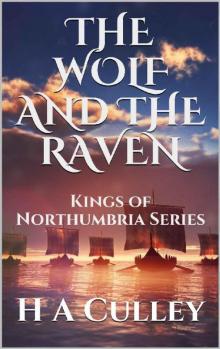 The Wolf and the Raven
The Wolf and the Raven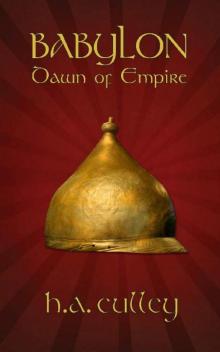 Dawn of Empire
Dawn of Empire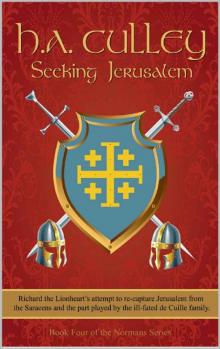 Seeking Jerusalem
Seeking Jerusalem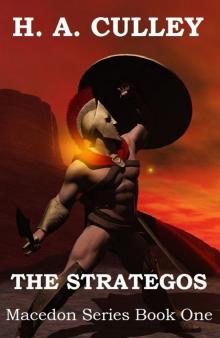 The Strategos
The Strategos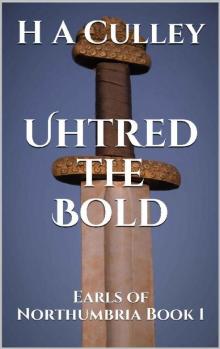 Uhtred the Bold
Uhtred the Bold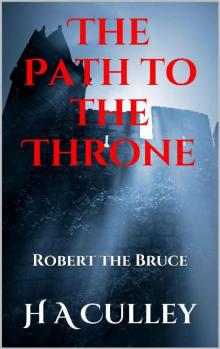 The Path to the Throne
The Path to the Throne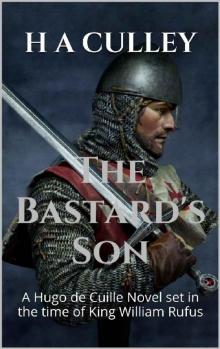 The Bastard's Son
The Bastard's Son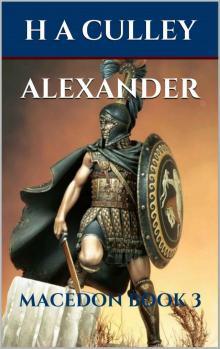 Alexander
Alexander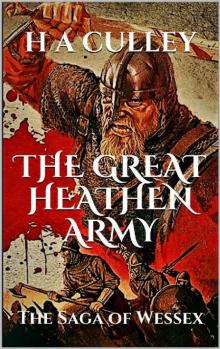 The Great Heathen Army
The Great Heathen Army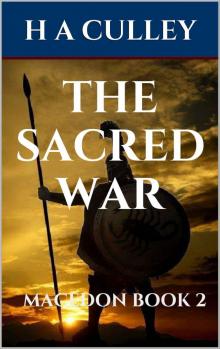 The Sacred War
The Sacred War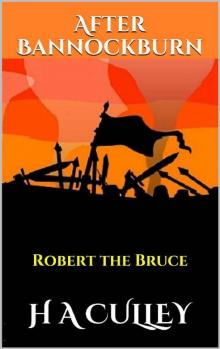 After Bannockburn
After Bannockburn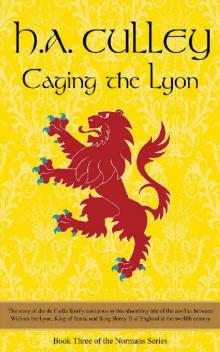 Caging the Lyon
Caging the Lyon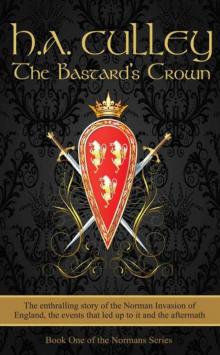 The Bastard's Crown
The Bastard's Crown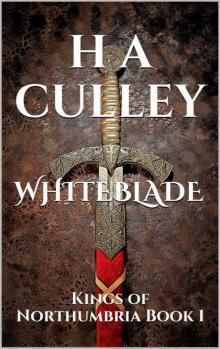 WHITEBLADE
WHITEBLADE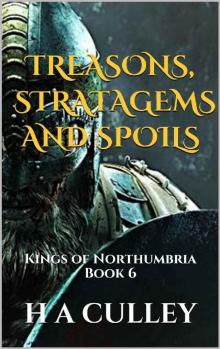 TREASONS, STRATAGEMS AND SPOILS: Kings of Northumbria Book 6
TREASONS, STRATAGEMS AND SPOILS: Kings of Northumbria Book 6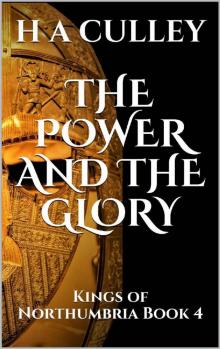 THE POWER AND THE GLORY: Kings of Northumbria Book 4
THE POWER AND THE GLORY: Kings of Northumbria Book 4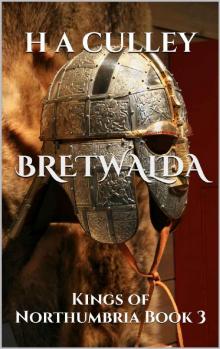 BRETWALDA: Kings of Northumbria Book 3
BRETWALDA: Kings of Northumbria Book 3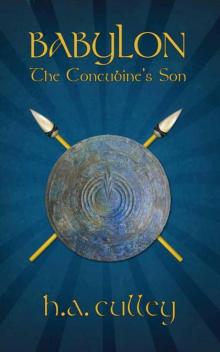 The Concubine's Son
The Concubine's Son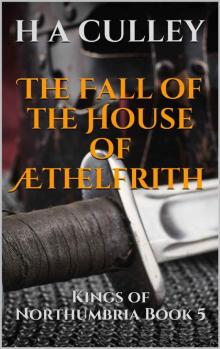 The Fall of the House of Æthelfrith: Kings of Northumbria Book 5
The Fall of the House of Æthelfrith: Kings of Northumbria Book 5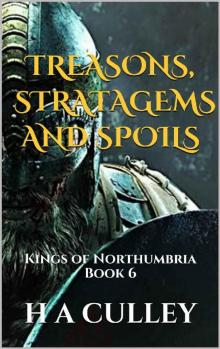 TREASONS, STRATAGEMS AND SPOILS
TREASONS, STRATAGEMS AND SPOILS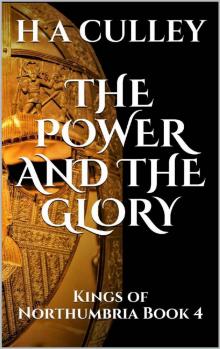 THE POWER AND THE GLORY
THE POWER AND THE GLORY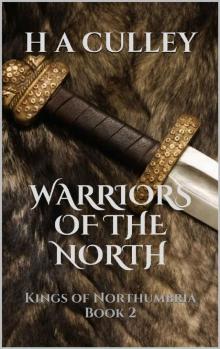 WARRIORS OF THE NORTH
WARRIORS OF THE NORTH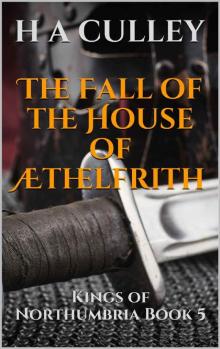 The Fall of the House of Æthelfrith
The Fall of the House of Æthelfrith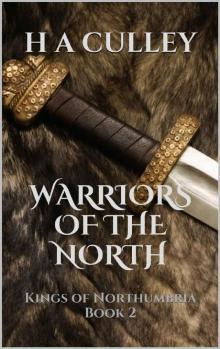 WARRIORS OF THE NORTH: Kings of Northumbria Book 2
WARRIORS OF THE NORTH: Kings of Northumbria Book 2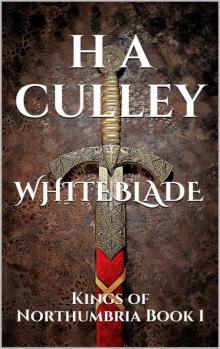 WHITEBLADE: Kings of Northumbria Book 1
WHITEBLADE: Kings of Northumbria Book 1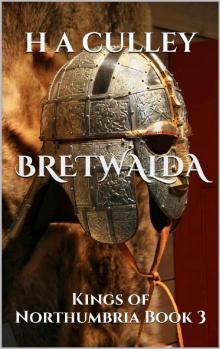 BRETWALDA
BRETWALDA